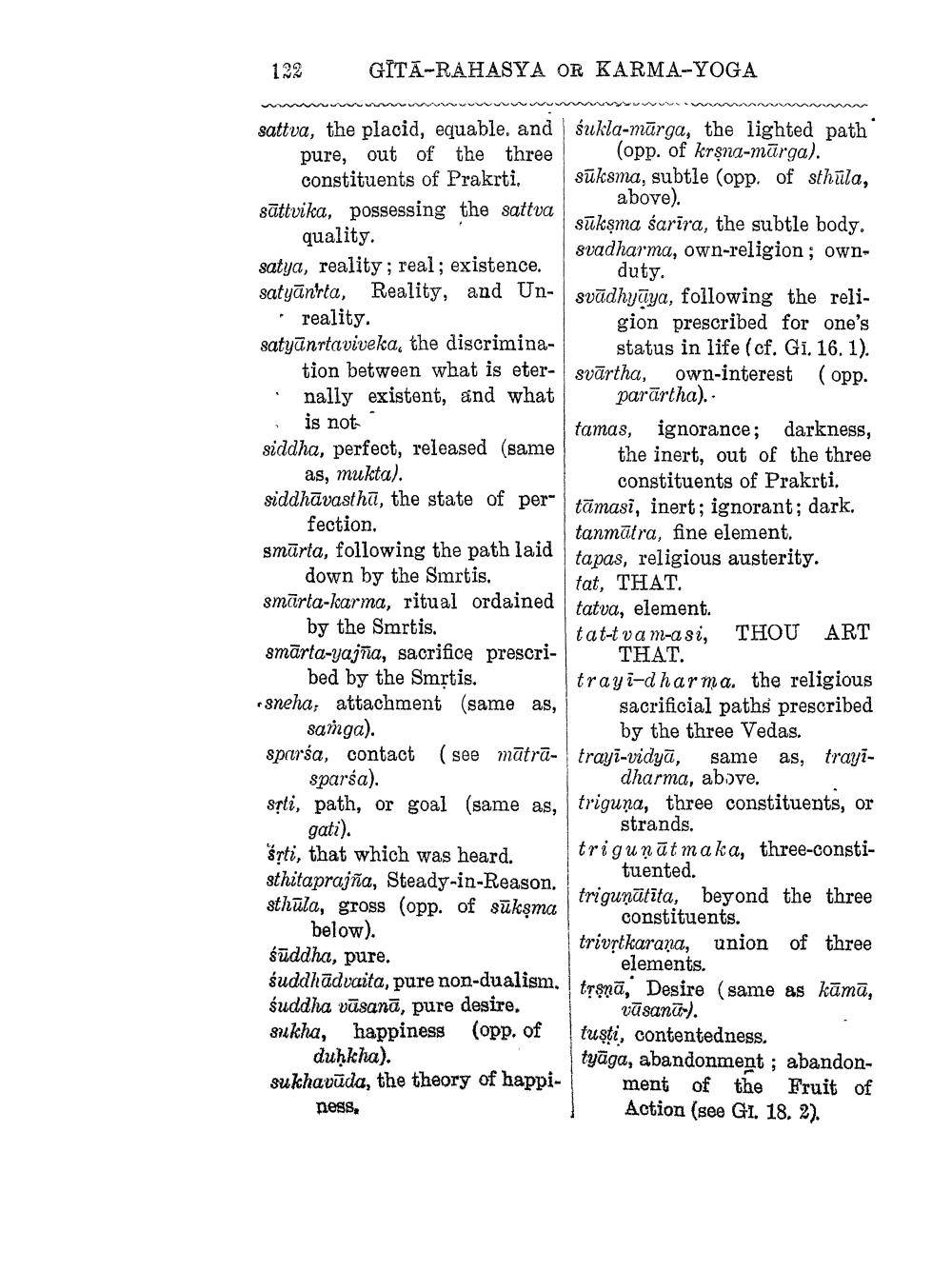________________
122
GITA-RAHASYA OR KARMA-YOGA
the
sattva, the placid, equable, and śukla-mūrga, the lighted path
pure, out of the three (opp. of krsna-mārga). constituents of Prakrti. sūksma, subtle (opp. of sthala,
above). sättvika, possessing the sattva
sūkşma śarīra, the subtle body. quality.
svadharma, own-religion; ownsatya, reality; real; existence.
duty. satyāntrta, Reality, and Un- svādhyüya, following the relireality.
gion prescribed for one's satyūnrtaviveka, the discrimina- status in life (cf. Gi. 16.1).
tion between what is eter- svārtha, own-interest (opp. nally existent, and what parārtha). is not
tamas, ignorance; darkness, siddha, perfect, released (same
the inert, out of the three as, mukta).
constituents of Prakrti. siddhāvasthā, the state of per
tāmasi, inert; ignorant; dark, fection.
tanmātra, fine element. smārta, following the path laid
tapas, religious austerity. down by the Smrtis.
tat, THAT. smārta-karma, ritual ordained
tatva, element. by the Smrtis.
tat-t va m-asi, THOU ART smārta-yajña, sacrifice prescri- THAT. bed by the Smrtis.
trayi-dharma. the religious sneha; attachment (same as, sacrificial paths prescribed sanga).
by the three Vedas. sparśa, contact (see mātrā- trayi-vidyā, same as, trayisparsa).
dharma, above. sști, path, or goal (same as, triguņa, three constituents, or gati).
strands. šyti, that which was heard.
triguṇāt maka, three-constisthitaprajña, Steady-in-Reason.
tuented. sthūla, gross (opp. of sūksma
trigunūtīta, beyond the three
constituents. below).
trivrtkaraṇa, union of three śüddha, pure.
elements. suddhādvaita, pure non-dualism, trsnā. Desire (same as kūmā, śuddha vāsanā, pure desire.
vāsanā). sukha, happiness (opp. of tuşti, contentedness. duḥkha).
tyāga, abandonment ; abandonsukhavūda, the theory of happi
ment of the Fruit of ness,
Action (see GI. 18. 2).
wood




